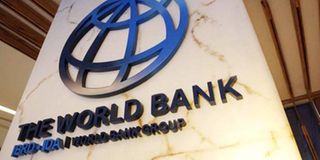The world bank needs deep reforms to reflect a changing world order

The sudden resignation of World Bank President Jim Yong Kim has rekindled debate about leadership succession and the mission of the international financial institution.
US president Donald Trump has nominated his preferred candidate, David Malpass, who is known for his sharp criticisms of the World Bank during his tenure as under-Secretary for International Affairs at the Treasury Department. Malpass is also known for his hostile attitude towards China and for being an advocate of protectionist policies.
By nominating Malpass, Trump continues the tradition of having an American lead the multilateral body. This is an outmoded tradition that does not take into account significant changes in the global distribution of power.
In particular, there’s been the notable rise of emerging countries such as China. Given the substantial changes in the profiles of major economic actors, there is a need to rethink the purpose and focus of the World Bank and other multilateral institutions.
The World Bank has an important role to play in the developing world. It could do much more if the US relaxed its grip on the institution. The leadership succession debate should not be merely fixated on personalities. Instead, it should be used to create space for reflection on the purpose of the multilateral body, the substantive role it should play in the future, the need to strengthen inclusive multilateralism, and the actions needed to bolster the position of emerging economies and developing countries.
The history
Historically, the World Bank has been led by an American, while the International Monetary Fund has been headed by a European. This is the function of a “gentlemen’s agreement” forged by Western powers in the post-war period.
The agreement has prevented candidates from other world regions taking leadership roles. In a previous race for leadership of the World Bank, for example, the former Minister of Finance in Nigeria Ngozi Okonjo-Iweala wasn’t selected. This was despite her superior credentials in the highest government echelons, in the World Bank where she previously held senior posts, and in the wider development community.
Threatened by China’s foray into infrastructure financing, the US the US seems to be strengthening its sway over the World Bank. It appears to be intent on turning the institution into a geopolitical trench to undercut China’s rising global influence. For example, the Trump administration has expressed misgivings about the World Bank providing loans to China.
America’s blinkered approach overlooks the fact that the World Bank’s involvement in China provides the US with a channel for policy influence in that country.
US-led world order
Antagonising China could backfire and push the country away from the US-led world order. It could result in China creating its own set of alliances and institutions in ways reminiscent of the Cold War tensions between the US and Russia in the aftermath of World War 2.
If the US was a confident power and serious about its commitment to strengthen multilateral institutions, it would not treat organisations such as the World Bank as if they were an extension of its government agencies.
Urgent need for action
Failure to adapt to the changing world order could see rising powers going their own way. Such a development would signify the emergence of multipolarity without multilateralism, and create a climate of conflicting interests and values among a diverse group of countries.
To ensure this doesn’t happen, reform of institutions like the World Bank is necessary. Such a process should begin with having a head of the body who doesn’t come from the US and who is selected on merit. That would signal an important departure from the past.
The World Bank needs a transformative leader who can refocus the institution to work with new generation multilateral development banks, development finance institutions, and other state-backed financing instruments in developing countries. All this is necessary to tackle long-standing infrastructure and other development challenges in the developing world. Malpass belongs to the old order and is ill-equipped to undertake such a task.




